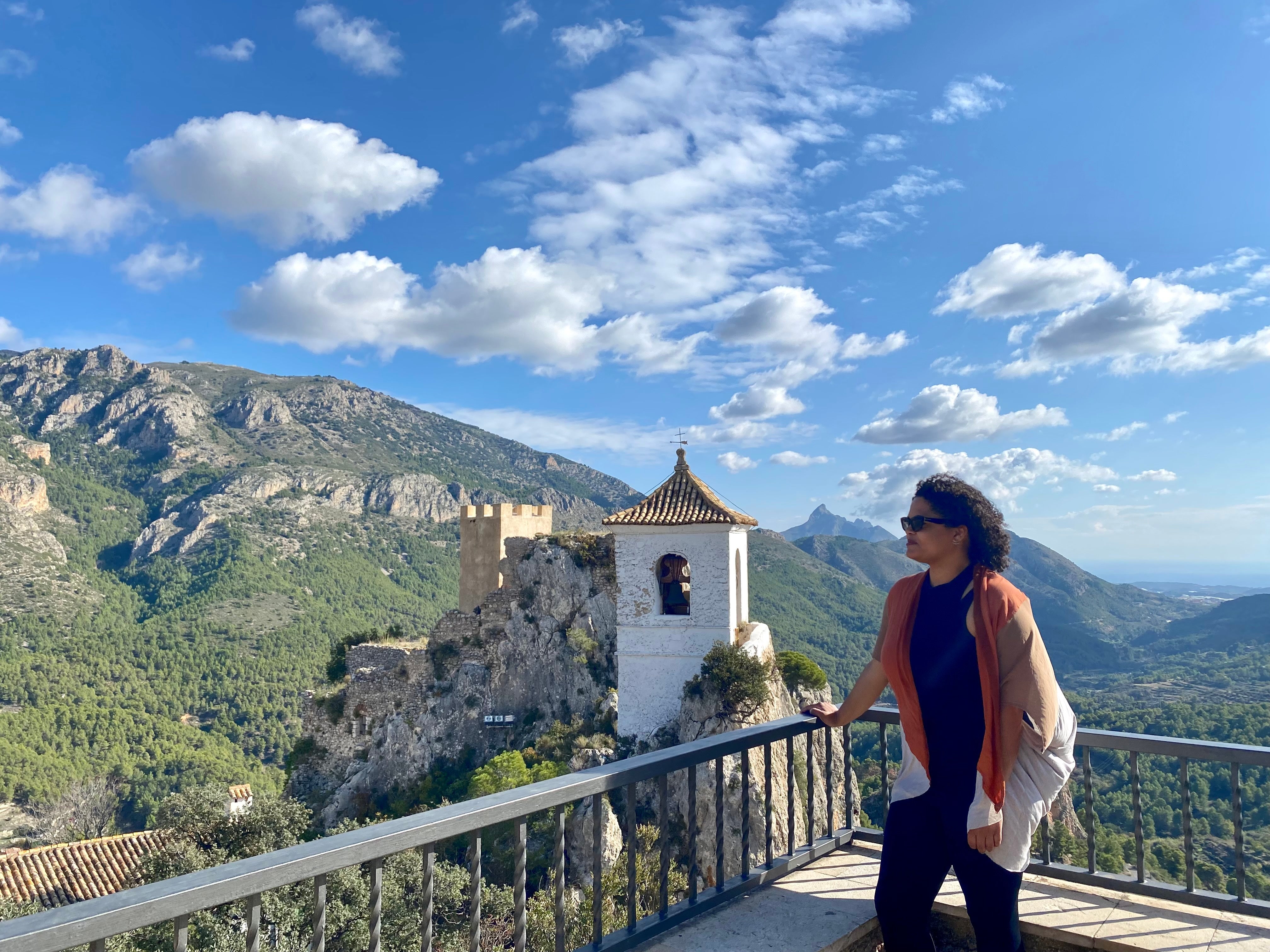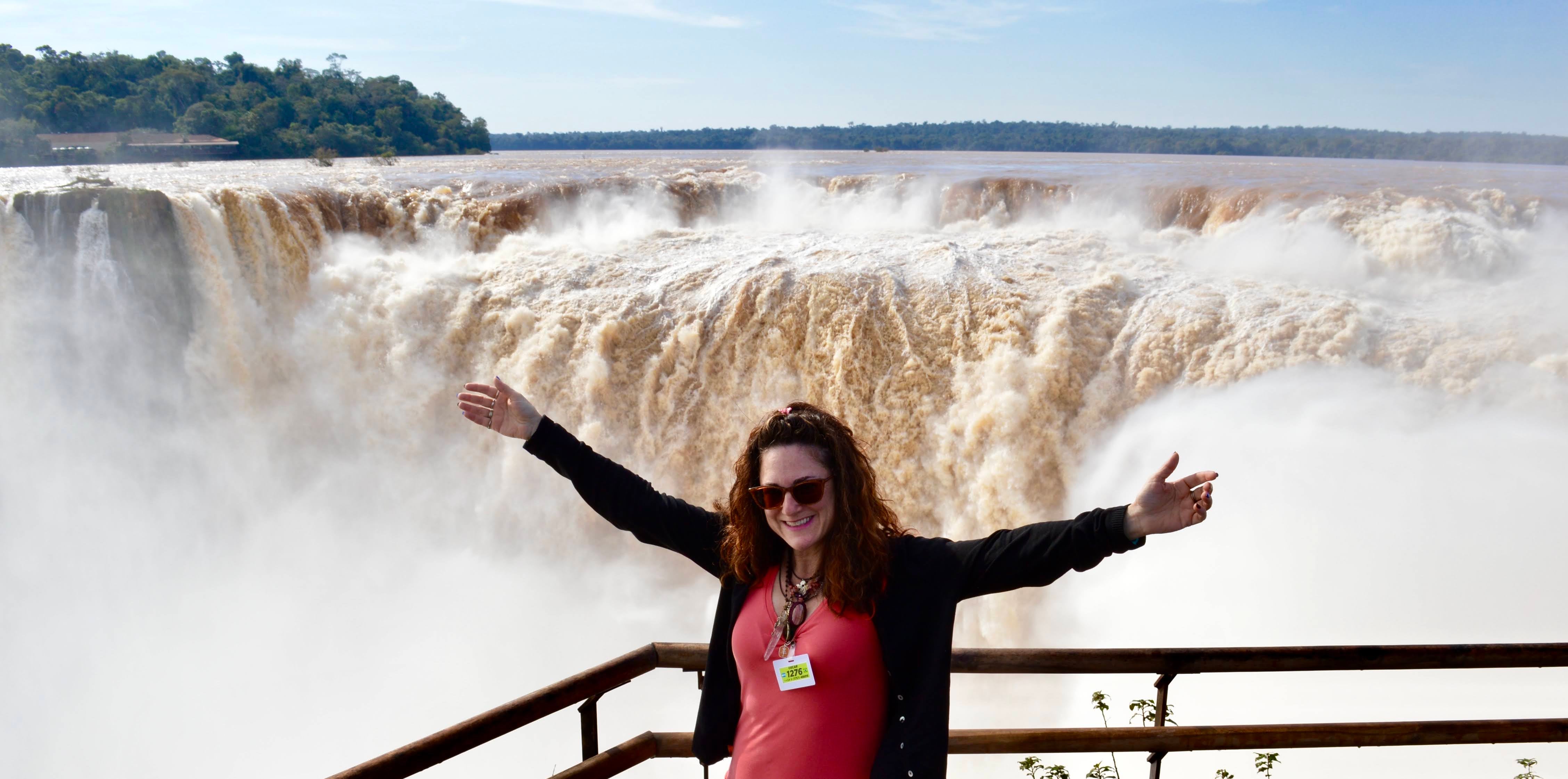When solo travel met the ‘Great Resignation’: Meet the workers who quit and hit the road
Following a flurry of mid-career professionals handing in their notice to embark on bucket-list adventures, Lucy Thackray speaks to some of the travellers who ditched the nine-to-five


Your support helps us to tell the story
From reproductive rights to climate change to Big Tech, The Independent is on the ground when the story is developing. Whether it's investigating the financials of Elon Musk's pro-Trump PAC or producing our latest documentary, 'The A Word', which shines a light on the American women fighting for reproductive rights, we know how important it is to parse out the facts from the messaging.
At such a critical moment in US history, we need reporters on the ground. Your donation allows us to keep sending journalists to speak to both sides of the story.
The Independent is trusted by Americans across the entire political spectrum. And unlike many other quality news outlets, we choose not to lock Americans out of our reporting and analysis with paywalls. We believe quality journalism should be available to everyone, paid for by those who can afford it.
Your support makes all the difference.In The Independent’s new travel trends column, Trendwatch, we dig into the types of trip, modes of transport and top buzzwords to watch out for.
It was inevitable, perhaps, that the events of the last couple of years would turn our career plans inside out.
In a “mass quitting” phenomenon – dubbed “the Great Resignation” last spring – established professionals have been handing in their notice and prioritising their personal life, be that family, self-development or travel.
It’s particularly profound stateside, where US workers are routinely given as little as 10 days annual leave. According to statistics from the US Department of Labour, in January nearly 4.3 million Americans quit their jobs.
In the UK, according to the Office of National Statistics, resignations rose sharply from the end of 2020 through the following six months, and significantly exceeded their pre-pandemic levels in the final quarter of 2021.
Meanwhile, a Randstad UK survey of 6,000 workers in November found that 24 per cent were planning a change or a move within the next three to six months.
Some are quitting to pursue new jobs or make a career change, of course. But many are ditching the nine to five to head off on adventures instead – a large percentage of whom are flying solo. Our feet are itchy, and for good reason.
Last month, hostel bookings website Hostelworld conducted a poll in which one in five respondents (21 per cent) said they would be handing in their notice before heading off on solo travels. In the same survey, 55 per cent of people who hoped to travel said they were craving the freedom of a solo adventure in 2022.
Tying into the trend coined last year as “Revenge Travel”, it’s part of a bigger wave of major life changes that combines career burnout, the Great Resignation and a longer-term upswing in people setting out on their travels alone.
A recent Condor Ferries study found that, between 2016 and 2019, the number of Google searches for “solo travel” increased by 131 per cent, with a 42 per cent increase in solo traveller bookings over the last two years.
I figured I’d rather be doing what I love - travelling - even if I have to struggle a little bit financially
Aisha Springer is one millennial who has quit her job in the last year to travel alone. After nearly a decade in the nonprofit fundraising sector, she had grown frustrated with what she felt was a restrictive workplace culture, low pay and poor holiday provision. She felt burnt out.
“I was having a really hard time caring about work or feeling motivated. I wanted to do a career switch, but also to travel more. And it’s really hard to do that with a maximum two weeks’ vacation a year,” she tells me.
“I was fed up with the American culture of living to work instead of working to live, especially since I was working hard, but making very little money – even with a master’s degree.”
After looking into English-teaching opportunities in Korea and Japan, Aisha settled on Spain. She’d been there before, had a couple of friends in the country and spoke conversational Spanish.
In September, she flew to Alicante on the east coast and rented an apartment. She teaches English part-time and uses her days off to explore other areas like Barcelona, Granada and Valencia, as well as improving her language skills.
“I figured I’d rather be doing what I love – travelling – even if I have to struggle a little bit financially, instead of struggling to pay my bills while staying in one place. Also, the money I do have goes much further in Spain and many other places than it would in the US.”
“Gap years” aren’t a common thing for young people in the States, and Aisha is one of several solo travellers who tells me that pressing pause on a career and taking off travelling is seen as an unusual thing back home. But she feels she’s getting more out of the experience than she might have done at a younger age.
“I’m in my thirties, but some people in this teaching programme are straight out of college or university, and they’re not always mentally prepared. I think knowing yourself and knowing what you can handle is important.”
She’s felt more inspired to write a blog while she’s in Europe, and is planning to move to Germany next.
The pandemic really made me rethink the concept of time. All these things I said I was going to do – I wasn’t doing them
Natalie Greene* was in her early thirties when the pandemic hit and she fell dramatically out of love with her career, in a field she’d been in since university. When her team was forced to work remotely, she says, her mental health took a nosedive. Living alone, she felt completely isolated and begged for special exemption to be allowed back into the workplace.
“Something short-circuits in my brain when I’m not around other people – even without the general trauma we were going through. So by the summer the burnout and frustration was extreme,” she says.
It got so bad that she was signed off work for health reasons, and began questioning whether that career path was right for her. By the time the world began opening up last summer, she had had a lot of time to think about broadening her horizons.
“The pandemic really made me rethink the concept of time. All these things I said I was going to do – I wasn’t doing them. I wasn’t going to Athens to see my friend who lived there. I hadn’t visited the pyramids,” Natalie explains.
“Suddenly, I couldn’t do those things even if I wanted to. When we could go places again, I had this attitude of suddenly wanting to do those things.”
Once travel opened up, she took off for Greece solo – just on holiday initially, staying with her friend in Athens and visiting idyllic Greek islands on the side.

Then she made the bigger decision to quit her job and visit Egypt, to tick off her dream of seeing the pyramids, then Cyprus, Turkey, and Chile. Having found adventuring on her own restorative and spirit-boosting, she was away on and off for around nine months before looking for a new job back in the US.
“I think part of it was escape from what I was dealing with in New York. But also I may never have the chance again to pick up a one-way ticket, go on my own and go back home when I feel like it,” says Natalie now.
Unlike some solo travellers of her age group, she doesn’t see it as a forever thing. She plans to return to New York for a new job after her latest trip. She says she sees her self-imposed sabbatical as reconnecting her with “a world I felt disconnected from for so long”.
“I hope in the future, if I’m ever in between jobs again, to do something similar– to take a month or something.”
For Heather Markel, the idea of quitting and hitting the road isn’t the hot new trend – it’s the thing that friends (and if she’s honest, she) thought she was crazy for doing back in 2017.
After working in the corporate sector for 25 years, Heather knew she was good at her job. But she felt it wasn’t going anywhere – she craved some deeper “meaning and purpose”. Giving it a good two years’ thought, she saved up a stash of cash and decided to travel solo – initially for a few weeks.
“I started with Costa Rica, because I had to come back after six weeks for jury duty. It wasn’t too far and I knew I could get back.” Heather committed to the practice of “slow travel” – taking local buses, chatting to the residents and getting tips for unusual places rather than following the tourist trail.
“There are places I have been where I haven’t been to the major tourist spots. I like to talk to the locals, find out how they live, what food they eat,” she explains. She likes to book a flight, the first few nights of accommodation and then trust in local recommendations and pointers from new acquaintances after that.
She’s now visited 27 countries across six continents in this style – despite getting marooned in “lovely, largely-Covid-free” New Zealand for the best part of two years during the pandemic. Her highlights include an extended spell in Colombia (“a beautiful country, amazing food – a real gamechanger of shifting perceptions”), four months in Argentina and a Portuguese road trip.
Arriving in New Zealand in February 2020 (yes, that February 2020), Heather suddenly knew what her purpose in life was. “I was going to be the inspiration for anyone who wanted to quit mid-career and travel,” she laughs now. But just as she started to set about planning how she’d do it – well, no one was going anywhere for a while.
Now the travel shutdown has passed, she’s written a book and set up a life-coaching business where she helps people like Aisha and Natalie – often in their thirties, often from traditional, highly structured work backgrounds – figure out how to “do a Heather”.
I can see that, after being stuck in a box for the best part of two years, you’d start to reflect on whether that box was right for you
Rather than pedalling daydreams and romance about the prospect of ditching your job and catching a flight, she focuses on the practical aspects: what she calls “money, mindset and planning”. In essence, how to budget for it, how to change your outlook so you can live with less and experience more, and how to factor in the dull stuff – from selling apartments and putting belongings in storage to sorting out tricky visas or dealing with overseas bureaucracy.
Even before the “Great Resignation” headlines began to roll in, Heather knew this kind of travel fairy godmother could be in high demand.
“When I heard all of the thought processes coming out of the pandemic – I had already gone through all of that. I went through that even with being allowed out into the world.
“So I can see that, after being stuck in a box for the best part of two years, you’d start to reflect on whether that box was right for you.”
She’s delighted that it’s becoming more mainstream to consider opening up your horizons, thinking about what you need – experience-wise, rather than in terms of consumer goods – and taking time out if you need to.
“Now I realise I was just ahead of the curve and there’s going to be a big, big wave of people who want to do this. I felt like I was crazy when I did it, so I feel so touched that other people want to,” she tells me.
“It’s already started. It’s beautiful. It’s wonderful that people now feel this is something they can do.”
*Name has been changed
Join our commenting forum
Join thought-provoking conversations, follow other Independent readers and see their replies
Comments